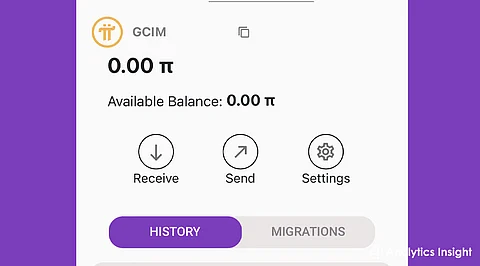

As the Pi Network has launched its main net, selecting a reliable digital wallet has become a key factor for anyone involved in the network. Wallets are important tools for making transactions, engaging with decentralized applications, and maintaining digital identity. So, let’s explore the best Pi wallets for April 2025 in detail.
Best Wallet is amongst the most trending options to go for among users of Pi Coin today due to its decentralized system and enhanced security. It allows full control over private keys by ensuring that they never leave the device. It signs transactions offline, eliminating risks associated with faraway storage or exchange wallets.
Although it doesn't have a desktop interface, the mobile app is well-optimized and supports multiple tokens, including swap functionality and natively integrated decentralized exchange. This makes it an effective solution for regular users of blockchain assets.
The Pi Wallet App was developed by the Pi Network's development team specifically to facilitate network-related activities. It is already the de facto wallet for interacting with the testnet and the mainnet. The non-custodial wallet ensures that private keys remain stored on the user's device.
The app also plays a fundamental role in verifying identity through KYC processes and entering ecosystem applications using the Pi Browser. Although it lacks advanced features such as token swaps or staking, it remains fundamental for participating in Pi’s blockchain as it evolves.
Despite not yet being integrated with Pi Network, Atomic Wallet is labeled as future-proof. It also supports over one thousand cryptocurrencies, stores keys safely, and back up securely by encrypting the backups.
Upon Pi Coin's going public, wallets like Atomic will undoubtedly implement support. Atomic's highly advanced asset management capabilities, decentralized status, and token swapping feature make it a suitable tool for individuals looking to engage within multiple blockchain frameworks.
Gate.io Web3 Wallet merges simple usage with decentralized innovation. It incorporates biometric authentication, secure storage through multi-party computation, and hassle-free interconnection with other decentralized applications.
Even though the Pi Coin isn't officially listed or supported yet on the site, this wallet is so universal that it supports tokens from novel networks once widely distributed. Its integration with the wider Web3 ecosystem makes it attractive to users who expect to engage with decentralized finance platforms in the future.
Ledger Wallet continues to be a trusted name in the crypto world, particularly for users who prioritize hardware-based security. Even though Pi Coin is not yet supported, Ledger’s compatibility with EVM-based tokens suggests that future integration is possible once Pi becomes publicly listed. Ledger devices allow offline key storage, reducing vulnerability to online threats. This makes them ideal for long-term holders waiting for the full rollout of Pi’s open blockchain and token utility.
Trust Wallet, one of the leading wallets compatible with numerous cryptocurrencies, is another contender that could potentially support Pi Coin in the near future. It gives full control over the private keys and features token swapping and staking between different blockchain networks.
Although native support for Pi is not yet fully realized, Trust Wallet's design allows for the addition of custom tokens, so it will likely be capable of supporting Pi when the coin is finally launched. The platform is simple to use, and the app has an excellent reputation for reliability in the crypto community.
Selecting the best Pi Coin wallet boils down to key control, decentralized application support, and readiness for the open mainnet. The Pi Wallet App will be the first option for full network participation. However, wallets such as Best Wallet and Gate.io Web3 Wallet offer additional features.
Cold storage solutions such as Ledger offer offline storage for the long-term management of assets. So, ultimately, it all depends on whether ease, security, or multi-token is the greatest priority. Investors should, thus, select the wallet that best suits their personal portfolio plan.
